I've checked multiple other answers for this error, but can't figure out why this is occuring.
from sympy.solvers import nsolve
from sympy import Symbol, log
x = Symbol('x')
u = nsolve(log(x/0.06) / (x-0.06) - 8,x)
print(u)
Traceback (most recent call last):
File "C:\Users\cyjac\PycharmProjects\pharmacome\scrap.py", line 5, in <module>
u = nsolve(log(x/0.06) / (x-0.06) - 8,x)
File "C:\Users\cyjac\PycharmProjects\pharmacome\venv\lib\site-packages\sympy\utilities\decorator.py", line 88, in func_wrapper
return func(*args, **kwargs)
File "C:\Users\cyjac\PycharmProjects\pharmacome\venv\lib\site-packages\sympy\solvers\solvers.py", line 2979, in nsolve
x = sympify(findroot(f, x0, **kwargs))
File "C:\Users\cyjac\PycharmProjects\pharmacome\venv\lib\site-packages\mpmath\calculus\optimization.py", line 920, in findroot
x0 = [ctx.convert(x0)]
File "C:\Users\cyjac\PycharmProjects\pharmacome\venv\lib\site-packages\mpmath\ctx_mp_python.py", line 671, in convert
return ctx._convert_fallback(x, strings)
File "C:\Users\cyjac\PycharmProjects\pharmacome\venv\lib\site-packages\mpmath\ctx_mp.py", line 634, in _convert_fallback
raise TypeError("cannot create mpf from " + repr(x))
TypeError: cannot create mpf from x
